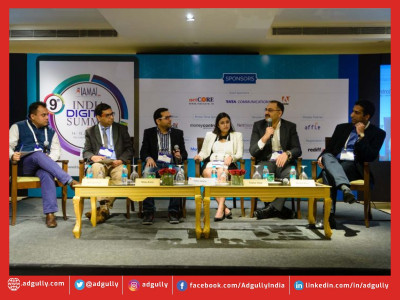Draft E-commerce Policy inimical to $1 tn digital economy: IAMAI
The Internet and Mobile Association of India [IAMAI] is of the view that the draft National E-commerce Policy may be inimical to the government’s efforts of building a trillion-dollar digital economy by 2022. By artificially curbing cross border data flow, by mandating data localisation, by extending the definition of e-commerce to include all digital services like digital advertising and online streaming and possibly imposing FDI restrictions (currently restricted to product e-commerce only under the Consolidated FDI Policy) on all digital services, the draft Policy is likely to severely bring down FDI flows in the sector which is the backbone to building a trillion-dollar digital economy.
The association also found that the process of making the Policy itself was less than inclusive and open as compared to more recent national level policies such as the National Digital Communications Policy 2018.
IAMAI expressed difference in opinion with the draft Policy’s understanding of ‘data is the new oil’. IAMAI stated that unlike non-renewable natural resources like oil or coal, data is non-exclusive, non-exhaustive and easily replicable. Furthermore, unlike the other natural resources, processing of data does not deplete the stock of data and only created further data.
The association also points out that the provisions of this Policy contradict the underlying principles of the draft Personal Data Protection Bill (PDP) on multiple grounds: the PDP is restricted to individual data and keeps anonymised data outside its ambit while the e-commerce policy covers all data; the PDP recognises individuals as ultimate owner of their data and even the State is at best a fiduciary, while the e-commerce bill considers State as the ultimate owner of data. The PDP recognises consumer’s consent while the e-commerce bill completely negates it; the PDP allows cross border sharing of data with limitations based on category of data while the e-commerce bill suggests blanket ban. IAMAI would like to highlight that the PDP was based on the principles of Privacy as fundamental rights as laid by the Supreme Court in the Puttaswamy Judgment.
IAMAI stated that going ahead, the processes and principles laid out in the Association’s submission will be followed in order to arrive at an effective national e-commerce policy.















Share
Facebook
YouTube
Tweet
Twitter
LinkedIn